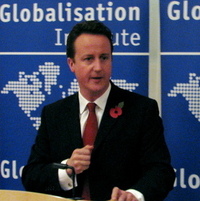| Image via Wikipedia |
What stood out on the international LGBT human rights front in 2011? A lot. But lets go out on a limb and pick three things.
- The repeal of Don't Ask, Don't Tell, the ban on lesbians and gays in the US military, in September.
- The appearance of LGBT organising, at some level, in most African countries. (See, for example, what's happening in Mozambique in a post from January).
- The death of the last known gay survivor of the Holocaust, Rudolf Brazda, in France.*
Marriage equality
In terms of The News, international reporting, this was the year of same-sex marriage.
Same-sex marriage (or 'marriage equality' or 'gay marriage') was a leading international concern - whether in the West or raised as a chimeric threat, particularly in Africa. This year it was legalised in the second most populous US state, home to the UN and intentional media - New York state. American polls also, for the first time, showed clear majority support for marriage equality.
The immigration problems of bi-national, same-sex couples due to the Bill Clinton-era federal Defense of Marriage Act (DOMA) drew national attention in America, but the Obama administration was criticised for being slow to act to use its powers to stop deportations of husbands and wives.
In the UK the Conservative-led government committed itself to marriage equality, there is to be a consultation next year, with Tory Prime Minister David Cameron famously saying he supported it because he was a conservative. The Scottish Nationalist government in Scotland appears likely to legalise same-sex marriage too, although there has been a strong, Catholic Church-led backlash.
In France, although marriage equality failed in the French parliament it is rumored that President Nicholas Sarkozy will announce his support in elections next year, supposedly inspired by Cameron's comments. But in Spain, lesbians and gays fear that a new conservative government may go backwards and convert gay marriages into gay civil unions.
It's been proposed by the Luxembourg government and by the Finnish government, and the Danish government permitted gay marriage in churches. The German parliament is going to vote on marriage equality next year. Civil partnerships are being mooted in Poland and Estonia - a first in a post-Soviet Union state.
Last month the governing Australian Labor Party supported same-sex marriage, though its leader does not and it is likely to fail when it reaches the parliament next year.
In July the Constitutional Court of Colombia ordered the Colombian government to legislate on same-sex relationship recognition - and that if they fail to, same-sex couples will be granted all marriage rights in two years.
Brazil's Supreme Court ruled that same-sex couples are legally entitled to civil unions, and same-sex marriage will be included in the new Nepalese constitution.
In October, in a little noticed but extremely interesting case, a Kenyan court recognised 'traditional' same-sex marriage.
In July, a court in Delhi, India, effectively recognised the marriage of a lesbian couple, whilst ordering that the state must protect them.
* NOTE: Brazda is the last known survivor of the concentration camps. Gad Beck, who managed to escape the camps and helped others survive, is still living.




































 Join our page
Join our page

